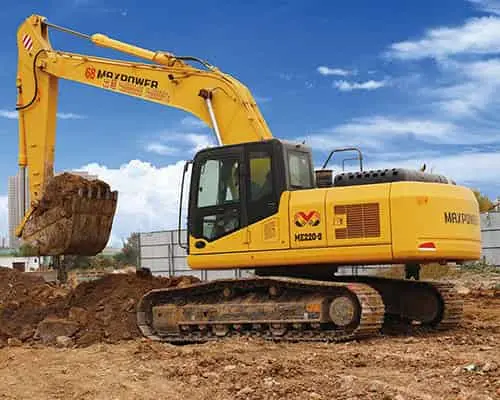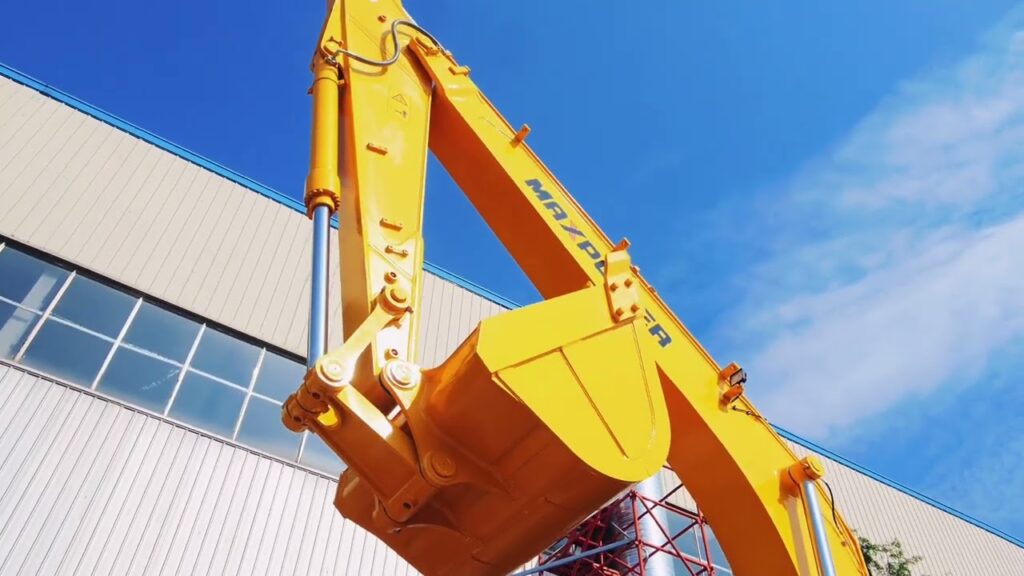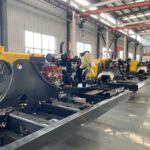Introduction
Backhoe vs excavator? How to choose? When it comes to heavy construction equipment, backhoes and excavators are two commonly used machines that play a key role in various construction projects. Understanding the differences between these two types of equipment and knowing which one is best for a specific task can significantly impact project efficiency and success. In this blog, we’ll explore the key features, benefits, and applications of backhoes and excavators to help you match the right equipment to your construction needs.
Understanding: Backhoe vs Excavator

Before delving into their differences, let’s first understand what defines a backhoe and an excavator:
- Backhoe: A backhoe is a versatile machine equipped with a digging bucket on the front and a backhoe on the rear. It is commonly used for digging trenches, loading trucks, and performing small demolition tasks.
- Excavator: An excavator, also known as a digger or a trackhoe, is a heavy-duty machine with a boom, stick, and bucket. It is primarily used for excavation, demolition, material handling, and landscaping tasks.
Comparing Features and Capabilities
To better understand the differences between backhoes and excavators, let’s compare their key features and capabilities:
| Feature | Backhoe | Excavator |
|---|---|---|
| Primary Function | Digging, loading, light demolition | Excavation, demolition, material handling |
| Mobility | Wheel-mounted | Track-mounted |
| Reach and Depth | Limited reach and digging depth | Greater reach and digging depth |
| Attachment Options | Limited | Wide range of attachments available |
| Maneuverability | More maneuverable in tight spaces | Less maneuverable in confined areas |
| Versatility | Versatile for various tasks | Specialized for excavation tasks |
Choosing the Right Equipment

Now that we’ve examined the features and capabilities of backhoes and excavators, let’s discuss how to match the right equipment to your construction needs:
Assessing Project Requirements: Evaluate the specific tasks and requirements of your construction project, such as digging depth, reach, and terrain conditions.For example, if you are planning to build a foundation for a new building in an area with rocky terrain, you will need a construction vehicle that has a powerful engine and good traction to handle the tough conditions. Additionally, if you need to dig deep trenches for underground utilities, you will require a machine with a sufficient digging depth and reach to complete the job efficiently.
Considering Versatility: If your project involves a variety of tasks, such as digging, loading, and light demolition, a backhoe may offer greater versatility.In addition, backhoes are typically easier to maneuver in tight spaces compared to larger equipment like excavators. This can be especially beneficial when working on smaller job sites or in urban areas where space is limited.
Prioritizing Efficiency: For larger-scale excavation or demolition projects that require greater reach and digging depth, an excavator may be the more efficient choice.In addition to their increased reach and digging depth, excavators are also equipped with a variety of attachments such as buckets, hydraulic hammers, and grapples, making them versatile machines for a wide range of tasks. Their tracks provide excellent stability and mobility on rough terrain, allowing them to navigate through challenging work sites with ease.
Evaluating Budget and Operating Costs: Consider the upfront cost, maintenance expenses, and fuel efficiency of both backhoes and excavators to determine the most cost-effective option for your project.When comparing backhoes and excavators, it’s important to also consider the versatility of each machine. Backhoes are typically more compact and maneuverable, making them ideal for smaller construction sites or projects that require digging in tight spaces. On the other hand, excavators are larger and more powerful, making them better suited for heavy-duty digging and lifting tasks. Think about the specific needs of your project and how each machine’s capabilities align with those requirements before making a decision.
Conclusion: Backhoe vs Excavator
In conclusion, both backhoes and excavators are valuable assets in the construction industry, each offering unique features and capabilities. By understanding the differences between these two types of equipment and assessing your project requirements, you can match the right equipment to your construction needs, ensuring optimal efficiency and productivity on the job site.
FAQ
Which equipment is better for digging trenches?
Backhoes are typically preferred for digging trenches due to their maneuverability and ability to work in tight spaces.
Can excavators be used for loading trucks?
While excavators are primarily designed for excavation tasks, certain models can be equipped with attachments, such as buckets or forks, to facilitate loading operations.
Are backhoes suitable for large-scale excavation projects?
While backhoes are versatile machines, they may not offer the reach and digging depth required for large-scale excavation projects. In such cases, excavators are often a more efficient choice.
Do excavators require specialized training to operate?
Yes, operating an excavator requires specialized training and certification due to the complexity of the machine’s controls and movements.
Can backhoes and excavators be rented for short-term projects?
Yes, both backhoes and excavators are commonly available for rental from equipment rental companies, making them accessible options for short-term construction projects.







-150x150.webp)
